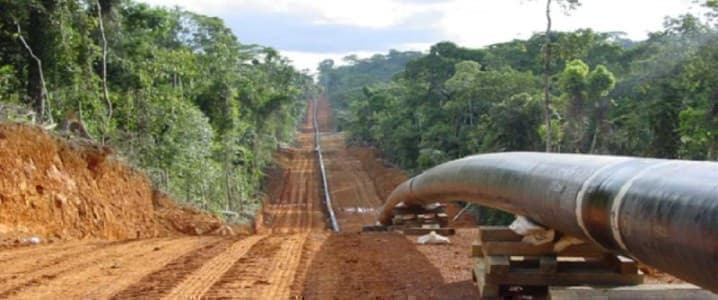When the Ugandan and Tanzanian governments announced the East African Crude Oil Pipeline project, it elicited very different reactions.
Some cheered the news that would add Uganda to the world's oil producer club and move its crude to buyers around the world from the Tanzanian coast.
Others almost immediately staged protests, claiming any new oil development would compromise the world's journey to a net-zero future. And then Western banks refused to finance EACOP.
It is a growing trend in financial services, especially in Europe. Banks are at the heart of the transition push and also at the heart of a concerted shunning of the oil and gas industry—even though many of the biggest banks are still perfectly happy to work with Big Oil.
So, earlier this year, Standard Chartered, the biggest Africa-focused lender, refused to participate in the debt financing part of the $5-billion EACOP project. That could have rendered the project unviable, seeing as there were no other Western banks eager to take its place. But what some forgot, apparently, was that Western banks were not the only ones available.
Shunned by Standard Chartered and its peers, the Ugandan government reached out to Chinese lenders, and one was happy to oblige, not least because CNOOC is one of the project's shareholders.
The EACOP story is indicative of a trend across Africa. The oil industry is very much on board with the development of the continent's untapped oil and gas reserves—the equity portion of the EACOP price tag was granted in no time by CNOOC, TotalEnergies, and the national oil companies of Uganda and Tanzania. And now, so are local and Chinese banks. As well as commodity traders. Related: U.S. Oil Drillers Add 4 Rigs, Brent Crude Hits $90
"It's pointless to think about the way things used to get done," the man in charge of Trafigura's upstream financing, Matthieu Milandri, said at the African Energy Week in South Africa this month, as quoted by Bloomberg.
But he also said something quite interesting. "The idea of political risk in Africa is exaggerated. Traders are doing good business in Africa." Then he went on to add, as quoted by the African Mining Market, that "As long as there is production, we can do business."
Trafigura is sponsoring new oil projects in African countries in exchange for some of the future production, in the latest proof that banks may be eager to signal their climate virtue, but commodity traders know what makes the world go round. African banks are also happy to take part in what the organizers of the African Energy Week dubbed "The African Energy Renaissance".
Bloomberg again reported that Africa Oil Corp., a Canadian-based, Nigeria-focused company, no longer works with European lenders. That's okay, however, it seems, because it now works with African banks.
According to Africa Oil Corp.'s chief financial officer, African banks are only too happy to step in and fill the space left by climate-conscious European lenders. There is strong interest in profitable oil and gas projects in Africa, Pascal Nicodeme said during the recent Africa Oil Week event, which also took place in Cape Town.
Chinese banks are also only too happy to step in. Nature abhors a vacuum, after all, and this is equally valid for natural and financial ecosystems. As the largest oil importer in the world, China is naturally interested in securing as diversified a list of suppliers as it can, and funding new projects is one way to do that—just like it did with critical minerals.
There is also the fact that the amount of available untapped oil and gas resources globally is shrinking, and much of what is available is in countries that the West doesn't exactly like or want to do business with. Just think Iran and Russia. Africa, on the other hand, is seen as a partner, especially since last year—and as a prospective supplier of hydrocarbons for an energy-starved Europe, even if Europe's banks want no part in getting these hydrocarbons out of the ground.
Big Oil is also interested, which is crucial. Shell and TotalEnergies are enthusiastically drilling for oil in Namibia, for instance, where they have so far tapped resources estimated at more than 11 billion barrels of oil. TotalEnergies is also leading the Ugandan oil exploration push, which led to the idea of EACOP.
There is a lot of oil and gas in Africa, in both legacy producers such as Nigeria and Angola, and new star hopefuls such as Namibia and Senegal. Western banks may not be tempted by the idea to participate in their extraction, too focused on their green credentials, but there appear to be plenty of other banks and companies that would readily provide the money and then take advantage of the future supply. That supply will be needed, regardless of what climate NGOs forecast. Just ask Trafigura and the rest of the commodity traders.
By Irina Slav for Oilprice.com
More Top Reads From Oilprice.com:
- Airlines: Plan To Phase Out EU Fossil Fuel Subsidies Would Backfire
- U.S. Sanctions Two Tanker Owners For Breaching The Russian Oil Price Cap
- Putin Says OPEC+ Output Cuts ‘Likely’ To Continue Into 2024



















However, Chinese banks are only too happy to step in and help finance the development of Africa’s vast oil and gas reserves.
This shows the hypocrisy of Western green policies which want African countries to keep their oil and gas reserves underground and focus instead on the reduction of CO2 emissions and this for a continent whose emissions in 2022 were the smallest in the world accounting for only 3.8% of global emissions.
May be there is a sinister side to Western green policies of wanting African nations to keep their oil and gas reserves underground for Western countries' future use.
Dr Mamdouh G Salameh
International Oil Economist
Global Energy Expert